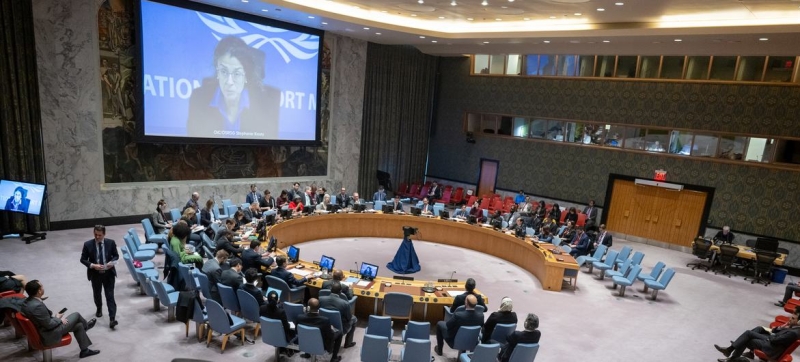
UN Security Council meeting on Libya Libya: “The guns are mostly silent, but there is still no peace” Peace and security
At a meeting of the UN Security Council, Deputy Special Representative of the UN Secretary-General for Libya Stephanie Koury spoke about the current situation in this country. She noted that Libya is at a crossroads of opportunities and challenges that require coordinated action both domestically and internationally.
Local elections
Stephanie Kouri started with good news: local elections were held in Libya. “Let me congratulate the Libyan people on the successful holding of local elections on 16 November in the first group of 58 municipalities in the country, during which 426 representatives were elected. It was a technically competent process, organised by the High National Electoral Commission, with the support of the police and security forces, who ensured peaceful conditions for voting,” Kouri said.
These elections, according to the UN representative, demonstrate the desire of Libyans to democratically choose their leaders. The next round of voting for another 60 municipalities is scheduled for January 2025.
The elections are part of the efforts of the United Nations Support Mission in Libya (UNSMIL), which has been helping the country rebuild institutions, promote reconciliation and support the transition to sustainable democracy since 2011.
Political stalemate threatens stability
However, local successes do not cancel out the serious challenges facing the country. The speaker recalled that it will soon be three years since Libya postponed national elections indefinitely. The rivalry between the UN-recognized Government of National Accord in Tripoli and the Government of National Stability in the east of the country, which is allied with the self-proclaimed Libyan National Army under the command of General Khalifa Haftar, has reached an impasse. “The status quo is unsustainable. The unilateral actions of political elites have deeply undermined Libyan institutions, creating parallel and competing structures,” Stephanie Koury emphasized.
The crisis surrounding the Central Bank of Libya has clearly demonstrated how fragile the situation in the country remains. In addition, disputes around the leadership of the Supreme State Council continue, which is preventing it from fully functioning.
UN Initiative: The Path to Unity and Elections
To overcome the political impasse, the UN Support Mission in Libya has proposed a new plan. According to the speaker, it is based on four principles: maintaining stability, relying on existing Libyan structures, strengthening institutions, and inclusiveness.
The central element of this initiative will be the creation of a consultative committee. Its task will be to find ways to resolve contentious issues in the electoral system and prepare the ground for general elections, as well as the formation of a united government.
This initiative builds on past Security Council resolutions, including the recent Resolution 2755, which reaffirms the need for inclusive political dialogue and elections to ensure long-term peace and stability in Libya.
Reforms and Human Rights
Kuri paid special attention to reforms in the financial sector. After overcoming a protracted crisis related to the management of the Central Bank, the UN Mission insists on the development of transparent budget rules for 2025. This should help stabilize the Libyan economy.
However, human rights remain one of the most pressing issues. “Arbitrary arrests and detentions continue throughout the country. I call on the Libyan authorities to grant the UN mission unhindered access to all places of detention,” Kury said.
An Appeal to the International Community
“The guns in Libya are largely silent now, but there is still no stability or peace in the country,” she noted. “Amid foreign interference, changes in the region and growing economic difficulties, it is important to join efforts to seize the chance for a political settlement and a peaceful future.”
Stephanie Kury appealed to the members of the Security Council and the international community to support Libya. “The Libyan people have not only demonstrated their desire for peace, but also proven their ability to negotiate and agree to compromise. They need your united support,” the UN representative concluded her speech.
